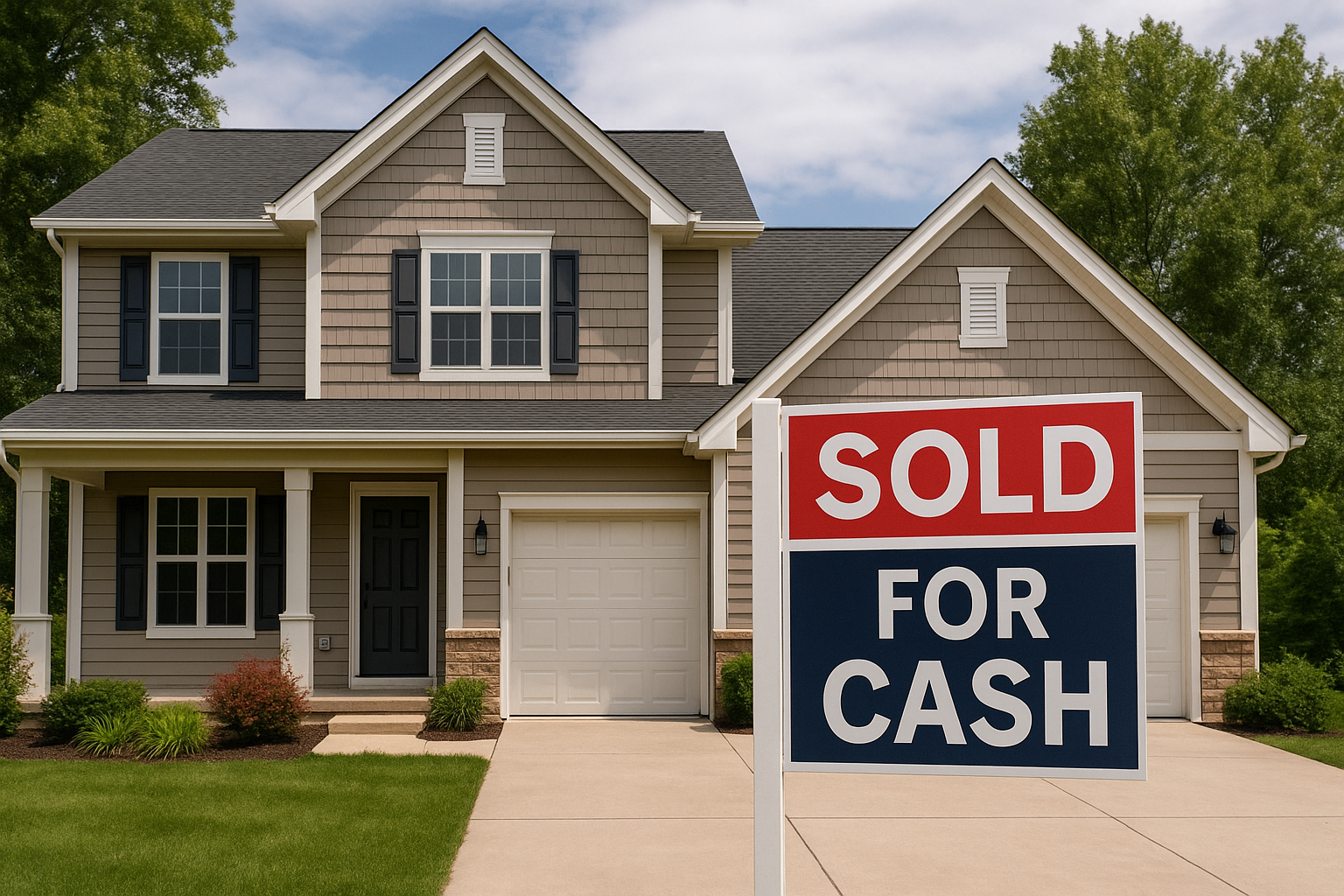Selling a house for cash can feel like a dream come true—fast closings, no repairs, fewer headaches. But like any real estate transaction, it's not something you should rush into without a clear understanding of the process. Whether you're downsizing, relocating, or simply looking for a quicker way to sell, cash offers can be a great option. Still, there are a few things every homeowner should check before signing on the dotted line.
Cash sales remove many of the traditional complications—like waiting for a buyer’s loan to be approved or dealing with appraisal delays—but that simplicity doesn’t mean skipping due diligence. Knowing what to expect and what questions to ask will ensure that your sale goes smoothly and that you don’t leave money (or peace of mind) on the table.

Understand Who You're Selling To
The first and most important thing to confirm is who the buyer is. In recent years, the number of real estate investors, cash-buying companies, and “fix-and-flip” buyers has exploded. Some are highly reputable. Others may operate with vague terms, hidden fees, or aggressive tactics that don’t benefit you as the seller.

Tip: Before agreeing to a cash sale, research the buyer. Are they a local company with verified reviews? Do they have a history of successful closings in your area? Have they clearly explained their process?
Transparency is key. A trustworthy buyer should be willing to walk you through their offer, explain how they determine your home’s value, and give you time to review everything without pressure. If you’re feeling rushed or something feels unclear, that’s a red flag worth paying attention to.
Review the Offer in Detail
Cash offers are typically lower than what you might see in a traditional listing, but they come with benefits like speed, convenience, and no out-of-pocket costs for repairs. Even so, you should still take a close look at what’s included in the offer.

Tip: Make sure you understand if the offer is “net to seller” (meaning what you see is what you walk away with), or if there are closing costs, commissions, or service fees that will be deducted later. Also, check for contingencies—even cash buyers sometimes include conditions that could delay or cancel the sale.
Some offers include flexible closing dates, the ability to leave behind unwanted items, or assistance with moving costs. These add-ons can be valuable depending on your situation, so don’t be afraid to ask for terms that better fit your needs.
If your home is in a high-demand area like Dunedin, for example, you may have more room to negotiate or receive multiple offers. Take advantage of the local interest by comparing buyers and seeing who truly provides the most value, not just in price, but in terms of how smooth and stress-free the experience will be.
Confirm the Source of Funds
It may sound obvious, but not all cash offers are created equal. Just because a buyer claims they’re paying cash doesn’t always mean the money is readily available. Some buyers say they’re paying cash but plan to use hard money lenders or other third-party financing to fund the deal, which can introduce delays or even fall apart under scrutiny.

Tip: Before accepting an offer, ask for proof of funds.
A reputable buyer will have no issue showing you a bank statement or a letter from their financial institution confirming they have the amount needed to close. It’s a simple step, but one that protects you from wasting time or pulling your home off the market for a buyer who isn’t ready.
You should also find out who will handle the closing—whether it’s a title company, attorney, or escrow agent—and make sure they’re licensed and well-reviewed. These professionals will ensure the funds are properly transferred and that all legal documents are handled correctly.
Know the True Value of Your Home
Even if you’re drawn to the ease of a cash sale, it’s important to have a realistic idea of what your home is worth. Before you accept an offer, do a little market research. Look at recently sold properties in your neighbourhood that are similar in size, condition, and age. This will give you a ballpark range of what your home could command on the open market.

Tip: Keep in mind that cash buyers typically offer less than retail value because they’re assuming the risk and cost of repairs, future resale, and holding costs.
But if the offer is significantly below your home’s market range, it’s worth asking for clarification—or getting a second opinion.
Some homeowners even get a professional appraisal or talk to a local real estate agent for a quick price analysis. This doesn’t mean you have to list your home traditionally—it just arms you with knowledge so you can make an informed decision.
Cash buyers know what they’re doing, and you should too. The more you understand your home’s potential value, the more confident you’ll feel when evaluating offers.
Check the Timeline and Flexibility
One of the main reasons people choose cash sales is the speed. But even within the world of fast closings, timelines can vary. Some buyers can close in as little as seven days, while others may need a few weeks due to their internal process.

Tip: Clarify the timeline early in the conversation.
When do they plan to close? Are they flexible if you need more time to move out? Can they accommodate a rent-back agreement if you need to stay in the home for a short time after closing?
Selling quickly doesn’t mean rushing the details. Make sure the timeline works for your schedule and that you’re not forced into a move before you’re ready.
Also, consider what’s included in the process. Some buyers offer to handle clean-outs or allow you to leave behind unwanted furniture or clutter. That’s a huge bonus, especially if you’re dealing with an inherited home or downsizing. Small details like these can make a big difference in your stress level as the deal wraps up.














